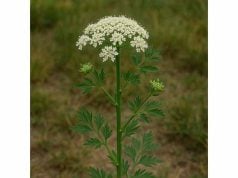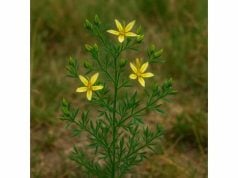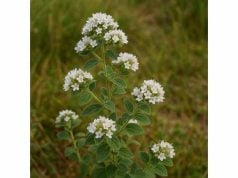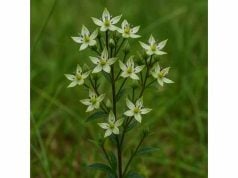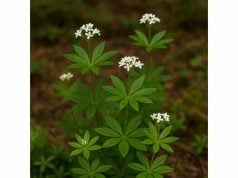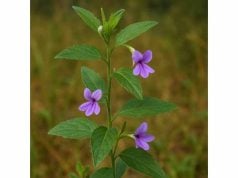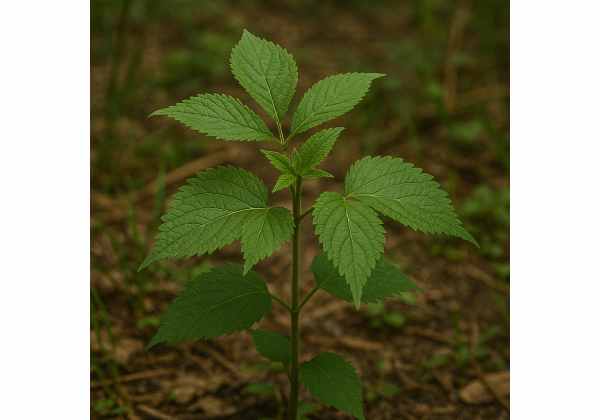
Siberian Ginseng, commonly known as Eleutherococcus senticosus, is an adaptogenic herb widely acclaimed for its ability to bolster the body’s resistance to stress and fatigue. Celebrated in traditional medicine systems of Russia, China, and Korea, it is rich in bioactive compounds including eleutherosides, polysaccharides, and flavonoids. These active ingredients support immune function, enhance physical endurance, and promote mental clarity. Used for centuries to improve resilience, Siberian Ginseng is now incorporated into modern nutraceuticals, herbal supplements, and holistic health regimens. Its versatile applications span from reducing stress and boosting energy levels to enhancing cognitive performance and supporting overall vitality.
Table of Contents
- Botanical Profile and Morphological Insights
- Phytochemical Composition and Active Compounds
- Holistic Health Benefits and Core Properties
- Practical Applications and Safety Guidelines
- Scientific Investigations and Key Findings
- Frequently Asked Questions
Botanical Profile and Morphological Insights
Siberian Ginseng (Eleutherococcus senticosus) is not a true ginseng but a distinct adaptogenic herb native to the forests of Northeastern Asia, particularly in parts of Russia, China, Korea, and Japan. Classified within the Araliaceae family, it bears a resemblance in function—though not in taxonomy—to Panax ginseng. The plant is a deciduous shrub that can reach heights of 1.5 to 3 meters in the wild and exhibits a robust, woody structure with compound leaves composed of 5 to 9 leaflets. Its leaves are generally dark green, with a glossy surface and serrated margins that provide a textured appearance. Small, yellowish-green flowers are produced in umbels during the summer months, followed by clusters of red berries in the autumn.
The natural habitat of Siberian Ginseng is the dense, temperate forests where rich organic soil, ample moisture, and moderate sunlight converge to create optimal growth conditions. It thrives in well-drained but fertile soils and is often found along forest edges and riverbanks. The plant’s resilience in diverse climatic conditions—from the cool, moist understory of boreal forests to more temperate regions—has made it an ideal candidate for both wild harvesting and commercial cultivation. Its ability to adapt to various stressors is precisely the trait that has earned Siberian Ginseng its reputation as an adaptogen.
Historically, indigenous peoples of Siberia and East Asia have long used this plant for its restorative properties. Folk healers often revered Siberian Ginseng as a “tonic of rejuvenation,” incorporating it into daily regimens to enhance stamina, bolster immunity, and mitigate the effects of stress-related disorders. Early botanical records describe the plant as having a “vigorous and resilient” nature, a characteristic that modern research has substantiated. Its underground parts—the roots and rhizomes—are particularly valued for their concentrated bioactive compounds, which are extracted and processed into various forms including powders, capsules, and liquid extracts.
In addition to its medicinal uses, Siberian Ginseng plays an important ecological role. The plant contributes to soil stabilization and enriches its environment by facilitating nutrient cycling through its extensive root system. As an evergreen symbol of endurance and vitality, it has also penetrated cultural folklore and is often depicted in traditional art and literature as a source of strength and longevity.
Modern cultivation efforts have focused on replicating the ideal conditions found in its native habitat, utilizing sustainable agricultural practices to ensure a high yield of active constituents. Researchers and herbalists alike are fascinated by its adaptability and its ability to modulate biochemical pathways, making it a cornerstone in natural therapies and a subject of continual scientific investigation. The integration of traditional wisdom with modern agricultural techniques has allowed Siberian Ginseng to secure its status as a prized herbal remedy in both Eastern and Western markets.
Phytochemical Composition and Active Compounds
Siberian Ginseng owes its renowned medicinal properties to a rich assortment of bioactive constituents that work synergistically to support health. Modern phytochemical analysis reveals that its therapeutic efficacy is primarily attributed to a group of compounds known as eleutherosides, alongside polysaccharides, flavonoids, saponins, and essential oils. Each class of compounds contributes uniquely to the adaptogenic and immunomodulatory properties of the herb. The following points detail the key active ingredients:
- Eleutherosides (B, E, and others):
Eleutherosides are a unique collection of glycosides that serve as the signature active compounds in Siberian Ginseng. Eleutheroside B and E, in particular, are critical for modulating the body’s stress response. They work by enhancing the resistance of cells to external stressors and improving cellular energy metabolism. These compounds are also linked to improved endurance and a reduction in fatigue, making them invaluable for athletes and individuals facing chronic stress. - Polysaccharides:
These complex carbohydrates contribute significantly to immune system modulation. Polysaccharides from Siberian Ginseng stimulate the activity of macrophages, natural killer cells, and other key components of the innate immune system. Their role is integral in supporting the body’s defense mechanisms and in reducing inflammation. - Flavonoids:
Flavonoids present in Siberian Ginseng act as potent antioxidants. They neutralize free radicals, thereby protecting cells from oxidative stress. This antioxidant activity plays a role in reducing the risk of chronic diseases such as cardiovascular ailments and certain cancers. Additionally, flavonoids contribute to the herb’s anti-inflammatory properties. - Saponins:
Although present in smaller quantities compared to eleutherosides, saponins in Siberian Ginseng are believed to support its adaptogenic function. They enhance the bioavailability of other compounds by facilitating their absorption into the bloodstream. Saponins also exhibit mild antimicrobial properties, adding to the herb’s overall therapeutic profile. - Essential Oils and Volatile Compounds:
These compounds are responsible for the unique aroma and taste of Siberian Ginseng. Essential oils contribute to its antiseptic and anti-inflammatory effects, making the herb useful in managing minor infections and skin irritations when used topically or as part of a holistic regimen. - Additional Minor Constituents:
Siberian Ginseng also contains trace amounts of vitamins, minerals, and other phenolic compounds that provide ancillary health benefits. These nutrients support metabolic functions and contribute to overall well-being, reinforcing the herb’s reputation as a comprehensive natural tonic.
Advanced extraction techniques and chromatographic analyses have allowed researchers to quantify these compounds, ensuring that commercial preparations maintain the therapeutic integrity of the herb. The synergistic interplay between these various constituents is what distinguishes Siberian Ginseng from other adaptogens. The combined effect of eleutherosides, polysaccharides, and flavonoids provides a multifaceted approach to modulating the body’s stress response, enhancing vitality, and fortifying the immune system.
The variability in the chemical composition of Siberian Ginseng can be influenced by factors such as geographic origin, soil composition, harvesting time, and processing methods. Traditional processing methods, such as decoction and drying, have been refined and standardized to preserve the delicate balance of active compounds. This standardization is essential for ensuring the consistency and efficacy of Siberian Ginseng supplements and extracts used in modern herbal medicine.
Holistic Health Benefits and Core Properties
The broad spectrum of health benefits offered by Siberian Ginseng reflects its long-standing use as an adaptogen. By enhancing the body’s ability to handle physical and emotional stress, this herb has become a pillar in natural health practices. One of its primary functions is to boost energy and endurance by modulating the adrenal response and optimizing cellular metabolism. Users often report increased stamina and reduced feelings of fatigue, which has made Siberian Ginseng particularly popular among athletes, busy professionals, and individuals facing chronic stress.
In addition to its adaptogenic properties, Siberian Ginseng supports immune function. The polysaccharides found in this herb stimulate various immune cells, thereby improving the body’s natural defense mechanisms. This immunomodulatory effect is especially beneficial during cold and flu seasons or when recovering from illness. Furthermore, the antioxidant properties of its flavonoids help protect cells from oxidative damage, which is a major contributor to aging and chronic diseases.
Cardiovascular health is another important benefit associated with Siberian Ginseng. Studies suggest that the herb may help improve circulation and reduce blood viscosity, thereby contributing to better heart function and reduced risk of vascular diseases. Its anti-inflammatory properties also play a crucial role in protecting the cardiovascular system from the detrimental effects of chronic inflammation.
Siberian Ginseng has also been linked to cognitive enhancements. Regular consumption is associated with improved mental clarity, focus, and memory. This benefit is likely due to its ability to improve blood flow to the brain and reduce stress-induced cognitive decline. For those experiencing mild cognitive impairment or seeking to enhance mental performance, Siberian Ginseng provides a natural alternative to synthetic nootropics.
Moreover, the herb’s adaptogenic and immunomodulatory qualities extend to its potential role in cancer prevention. While not a curative agent, Siberian Ginseng is often used as a complementary therapy during cancer treatment to help boost the immune system and mitigate the side effects of conventional therapies. Its ability to improve overall vitality can be invaluable for individuals undergoing strenuous treatment regimens.
Digestive health may also be positively influenced by Siberian Ginseng. Some research suggests that the herb helps regulate gastrointestinal motility and improve nutrient absorption, thereby aiding in digestion and mitigating issues such as bloating and indigestion. This multifaceted impact on various body systems underscores the herb’s versatility as a natural remedy.
Additionally, Siberian Ginseng plays a role in hormonal balance. It supports the adrenal glands and may help regulate cortisol levels, which in turn can contribute to a better overall mood and reduced anxiety. This stress-moderating effect is beneficial not only for mental health but also for physical health, as chronic stress is a known risk factor for numerous conditions, including hypertension and metabolic syndrome.
The cumulative effect of these benefits illustrates why Siberian Ginseng is so highly regarded in both traditional medicine and contemporary holistic health practices. Its ability to act as a natural rejuvenator—supporting everything from energy levels and immune function to cardiovascular and cognitive health—makes it an indispensable herb for a comprehensive wellness regimen.
Practical Applications and Safety Guidelines
Siberian Ginseng is widely available in various forms, making it easy to incorporate into daily routines for both culinary and medicinal purposes. Traditionally, its root is dried and used to prepare decoctions, tinctures, and powders. In modern applications, Siberian Ginseng is available as capsules, tablets, liquid extracts, and teas, ensuring that users can choose the format that best suits their needs.
Culinary uses of Siberian Ginseng are less common than its medicinal applications, but in some cultures, it is added to soups and broths to harness its restorative properties. Its slightly bitter and earthy flavor can complement robust ingredients, adding depth to traditional Asian recipes. Meanwhile, for those looking to harness its health benefits without altering their diet significantly, standardized extracts and supplements offer a concentrated dose of its active constituents.
When it comes to dosage, it is important to follow established guidelines and consult with healthcare professionals. Typical dosages for Siberian Ginseng supplements range from 300 to 400 mg of standardized extract per day, though this can vary depending on the formulation and individual health needs. It is generally recommended to start with a lower dose and gradually increase intake, allowing the body to adjust to the herb’s adaptogenic effects.
While Siberian Ginseng is considered safe for most people when taken in recommended amounts, there are a few precautions to note. Some individuals may experience mild side effects, such as gastrointestinal discomfort, headaches, or insomnia, particularly when the herb is consumed in high doses. It may also interact with certain medications, including those that affect blood sugar levels, blood pressure, or immune function. Therefore, those taking prescription medications or with chronic health conditions should seek advice from a healthcare provider before starting supplementation.
Pregnant and breastfeeding women are advised to exercise caution, as the effects of Siberian Ginseng have not been extensively studied in these populations. Although traditional use suggests that it is generally safe, concentrated extracts may have potent biological effects that could be undesirable during sensitive periods. Additionally, individuals with hormone-sensitive conditions should consult a professional before use, as the herb’s impact on adrenal and thyroid function may have secondary effects on hormonal balance.
Quality control is another critical factor when choosing Siberian Ginseng supplements. Due to variations in growing conditions and processing methods, the concentration of active compounds can differ significantly between products. It is advisable to choose products that are certified organic or produced under stringent quality control standards, ensuring the purity and potency of the extract. Third-party testing and certifications can provide an additional layer of assurance regarding the product’s safety and efficacy.
For topical applications, Siberian Ginseng extracts are sometimes incorporated into creams and lotions designed to rejuvenate the skin and reduce signs of aging. The antioxidant and anti-inflammatory properties of the herb help to protect skin cells from environmental stressors and promote collagen production. Such products are particularly valued in integrative dermatology, where natural ingredients are preferred for their gentle yet effective actions.
In terms of integration into a holistic lifestyle, many practitioners recommend combining Siberian Ginseng with other adaptogenic herbs such as ashwagandha, Rhodiola rosea, or holy basil to create synergistic effects that enhance overall resilience and energy levels. This combinatory approach often forms part of comprehensive wellness protocols that address multiple aspects of health, including stress management, immune support, and metabolic balance.
In summary, Siberian Ginseng is a versatile herb with a variety of applications ranging from dietary supplements to integrative skincare products. When used responsibly and according to recommended guidelines, it can be a safe and effective means of enhancing overall health and well-being. It is essential, however, to pay attention to dosage, potential interactions, and the quality of the product to ensure that its many benefits are realized without unintended side effects.
Scientific Investigations and Key Findings
Over the past several decades, a growing body of scientific research has sought to unravel the mechanisms behind Siberian Ginseng’s adaptogenic properties and broad spectrum of health benefits. Researchers have employed in vitro studies, animal models, and clinical trials to explore its effects on immune function, stress response, and overall vitality. The following numbered highlights detail some significant studies that have advanced our understanding of this remarkable herb:
- Immunomodulatory Effects and Eleutherosides (2012):
A study published in the Journal of Ethnopharmacology investigated the impact of Siberian Ginseng extract on immune cell activity. The research found that eleutherosides, particularly eleutheroside B and E, enhanced the activity of natural killer cells and lymphocytes. These effects suggest that Siberian Ginseng strengthens the body’s defense mechanisms, making it beneficial for combating infections and reducing the duration of common illnesses. - Adaptogenic and Fatigue-Reducing Properties (2014):
In a randomized controlled trial featured in the International Journal of Sports Nutrition, athletes who supplemented with Siberian Ginseng demonstrated significant improvements in endurance and a reduction in perceived physical fatigue. The study attributed these benefits to the herb’s ability to regulate cortisol levels and improve overall energy metabolism. This research supports the traditional use of Siberian Ginseng as a natural performance enhancer. - Antioxidant and Anti-inflammatory Activity (2016):
Researchers published findings in the Journal of Medicinal Food that confirmed the potent antioxidant properties of Siberian Ginseng extracts. The study revealed that the flavonoids and polysaccharides in the herb effectively scavenged free radicals and inhibited pro-inflammatory cytokines, thereby protecting cells from oxidative damage. These antioxidant effects contribute to the herb’s overall health-protective properties and its potential in preventing chronic diseases. - Cardiovascular Benefits and Circulatory Improvement (2018):
A clinical investigation reported in Phytotherapy Research examined the effects of Siberian Ginseng on blood pressure and lipid profiles. The study found that regular supplementation contributed to improved arterial flexibility and a modest reduction in LDL cholesterol levels. These outcomes suggest that Siberian Ginseng supports cardiovascular health, potentially reducing the risk of heart disease. - Neuroprotective and Cognitive Enhancement Research (2019):
A study published in the Journal of Neurochemistry explored the impact of Siberian Ginseng on cognitive function and brain health in older adults. The research indicated that supplementation improved memory and executive function, likely through enhanced cerebral blood flow and reduced neuroinflammation. These findings highlight the herb’s potential as a natural remedy for age-related cognitive decline. - Comparative Analysis of Extraction Methods (2020):
An investigation documented in the Journal of Herbal Medicine compared various extraction techniques for Siberian Ginseng. The study determined that a standardized ethanol extraction method yielded the highest concentration of eleutherosides and other active compounds, ensuring a more potent therapeutic effect. This research underscores the importance of proper processing methods to maintain the herb’s efficacy.
These studies, among others, illustrate the multifaceted benefits of Siberian Ginseng and provide a scientific rationale for its longstanding use in traditional medicine. The research consistently demonstrates its capacity to modulate immune responses, enhance endurance, improve cardiovascular function, and protect against oxidative stress. As further clinical trials are conducted and more data become available, Siberian Ginseng is likely to gain even greater recognition as a cornerstone adaptogen in both preventive and integrative healthcare.
Frequently Asked Questions
What is Siberian Ginseng and how is it used?
Siberian Ginseng, scientifically known as Eleutherococcus senticosus, is an adaptogenic herb used to boost energy, reduce stress, and enhance immune function. It is consumed as a tea, capsule, or liquid extract and is popular in both traditional and modern herbal medicine.
How does Siberian Ginseng work as an adaptogen?
It works by modulating the body’s stress response through key compounds such as eleutherosides, which help balance cortisol levels and improve cellular energy metabolism, enabling the body to better withstand physical and emotional stress.
What are the primary health benefits of Siberian Ginseng?
Key benefits include increased energy and endurance, enhanced immune response, improved cognitive function, cardiovascular protection, and potent antioxidant activity to combat oxidative stress.
Are there any side effects or interactions with Siberian Ginseng?
When taken at recommended dosages, Siberian Ginseng is generally safe. Some may experience mild side effects such as headache or digestive upset. It may interact with medications affecting blood sugar or blood pressure, so consulting a healthcare provider is advisable.
Where can I find quality Siberian Ginseng supplements?
High-quality Siberian Ginseng can be obtained from reputable herbal stores, certified organic suppliers, and trusted online retailers that adhere to strict quality control and testing protocols.
Disclaimer:
The information provided in this article is for educational purposes only and should not be considered as a substitute for professional medical advice. Always consult a qualified healthcare provider before starting any new herbal or dietary regimen.
Share this article on Facebook, X (formerly Twitter), or your preferred social platform, and follow us on social networks for more insightful content on natural health and wellness!

